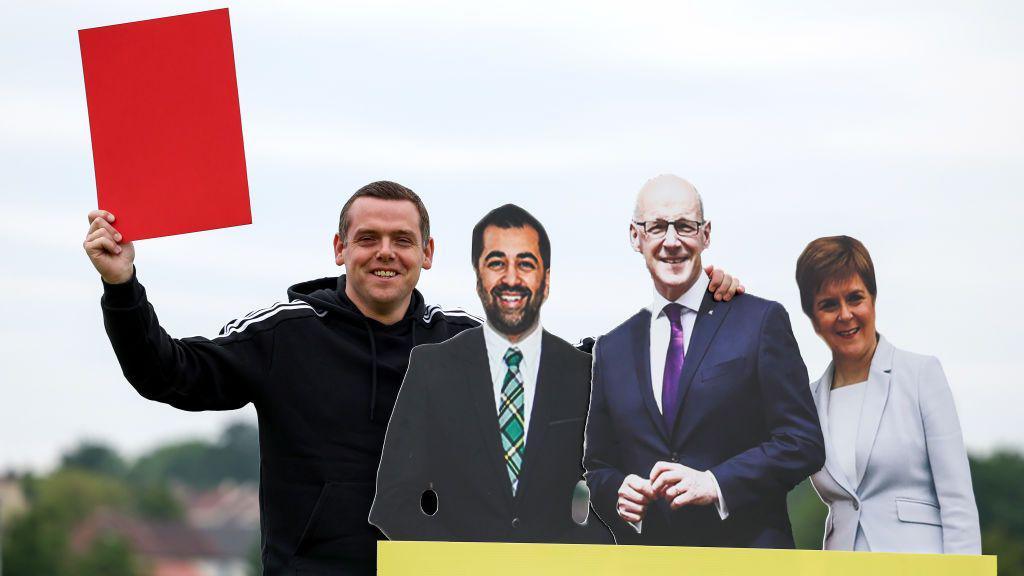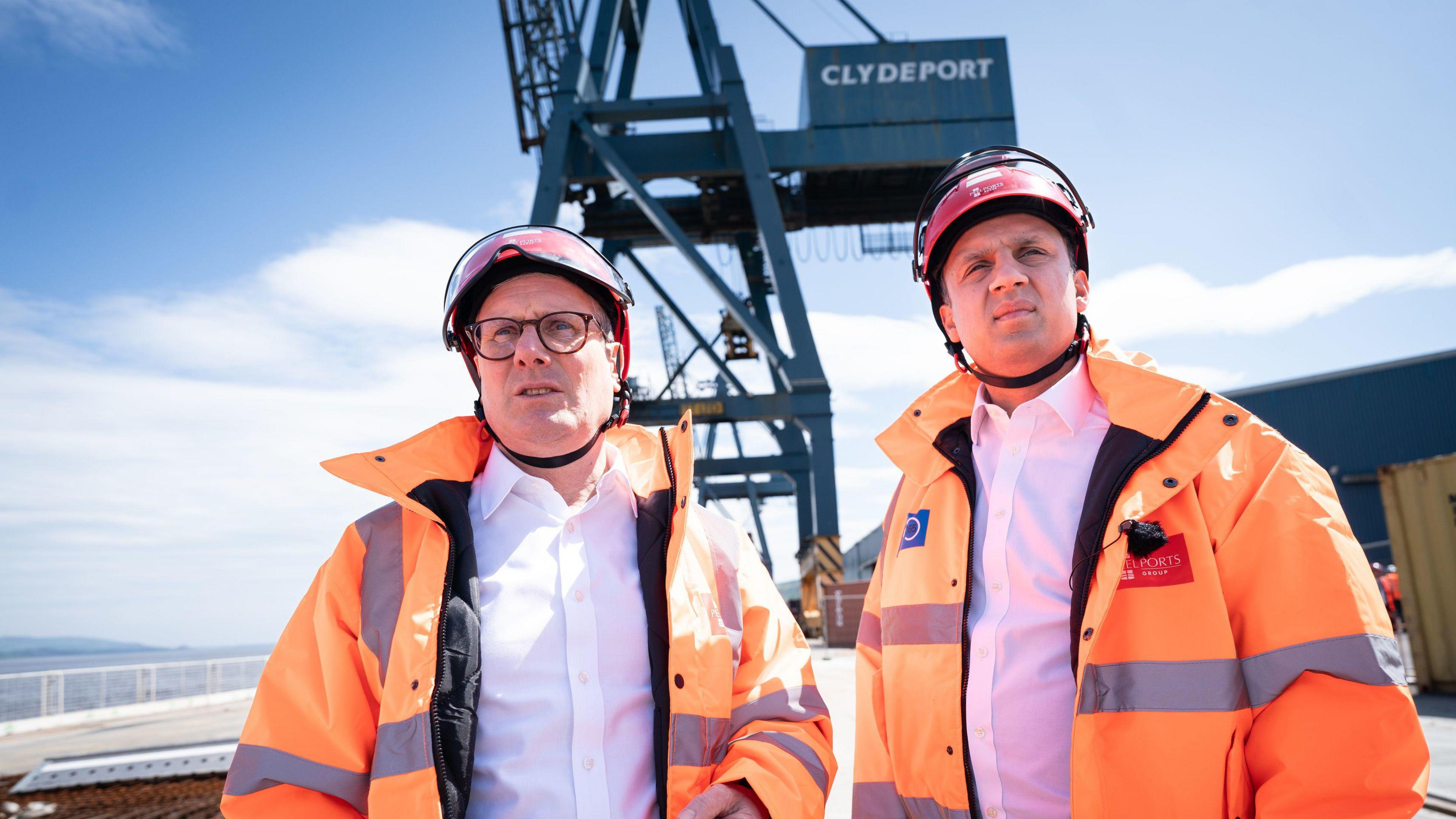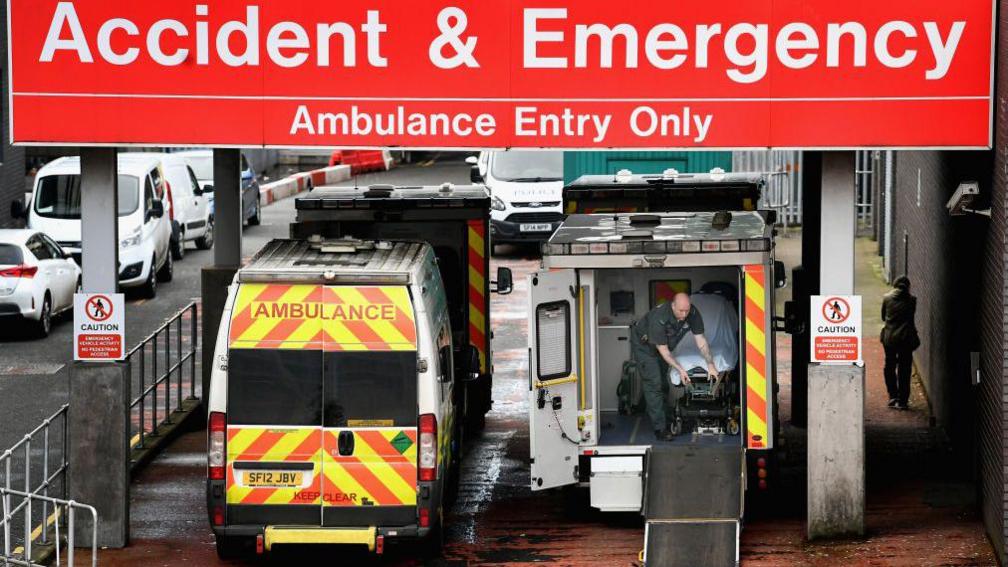SNP faces 'tough challenge' in election - Swinney
Mr Swinney finds himself in the midst of a general election campaign less than a month after he succeeded Humza Yousaf as SNP leader and first minister
- Published
Scotland's first minister has admitted the SNP faces a "tough challenge" in the upcoming general election.
John Swinney said he wants the SNP - which won 48 seats in the last election - to hold on to its current status as the third largest party at Westminster.
And he said his party again winning a majority of seats in Scotland would see him attempt to "open up" the process of independence.
Mr Swinney succeeded Humza Yousaf as SNP leader and first minister less than a month ago.
Recent opinion polls have suggested his party is facing a tough fight with Labour on 4 July if it is to continue to be Scotland's biggest party at Westminster.
Labour rule out migration target as Tories defend record on NHS
- Published2 June 2024
A simple guide to the 4 July general election
- Published4 July 2024
Mr Yousaf resigned after ending a power-sharing deal with the Scottish Greens, which means the SNP now runs a minority government in the Scottish Parliament.
The party has also had to deal with an on-going police investigation into its finances.
Last week this resulted in a report being sent to Scotland's prosecution service in relation to former SNP chief executive Peter Murrell - the husband of former leader Nicola Sturgeon - who was charged with embezzling party funds.
Scottish Labour deputy leader Jackie Baillie said earlier this week that voters were telling her party on the doorsteps that they are "fed up with the broken status quo after 17 years of the SNP and 14 years of the Tories".

Scottish Conservative leader Douglas Ross showed Scotland's last three first ministers the red card while on the campaign trail
The Scottish Conservatives are hopeful of holding on to their existing seats north of the border - and believe they can win some more - and are urging voters to "show the SNP the red card".
And Scottish Liberal Democrat leader Alex Cole-Hamilton says his party’s MPs will hold the feet of the next government to the fire, whoever ends up in Downing Street.
Meanwhile, Mr Swinney denied he is feeling the heat from Labour despite taking over the leadership after a difficult period for his party.
He said: "That's why I'm here. I'm here because the SNP faced a tough challenge and faces that.
"But we're working around the country to try to overcome that and I'm giving it all of my energy to make sure the SNP successful in this election."

Labour Party leader Sir Keir Starmer and Scottish Labour leader Anas Sarwar at the Port of Greenock in Inverclyde
The choice facing the electorate on 4 July has been framed as a straight battle for Number 10 between Prime Minister Rishi Sunak and UK Labour leader Sir Keir Starmer.
But Mr Swinney denied the easiest way to "get rid of the Tories" was to vote Labour.
He said: "We've got six Tory MPs in Scotland and the SNP are the challengers in every single one of those constituencies.
"So we're second place in each constituency.
"So if we want to numerically get rid of the Tories in Scotland, people should vote SNP and that will get rid of the Tories in those constituencies."
Mr Swinney said he believed it was important for the SNP to continue to be the third largest party in the United Kingdom and criticised the decision to exclude the party from some UK-wide TV leadership debates.
He said: "I think it's ridiculous that broadcasters are tolerating a situation that they're not having the leader of the third party on their on their broadcast debates.
"I think it's absolutely preposterous.
"It's anti democratic, and broadcasters need to reflect on it."

Asked what he could do to force a fresh independence poll, Mr Swinney said: "Well we can maintain the pressure on Westminster to actually follow a democratic plan, because it is ridiculous that in a western democracy, a UK government would stand in the face of the wishes and the will of people in Scotland to be democratic."
The SNP leader said this was "to his credit" accepted by then Prime Minister David Cameron when he agreed to hold a referendum in 2014, which saw voters back remaining in the UK by 55% to 45%..
He added: "I think that and that was accepted across the entire political spectrum.
"So that very simple principle that the people of this country have the right to self determination should be respected.
"And the best way to effect that is by voting SNP in this election."

On the domestic front, Mr Swinney was challenged about statistics which show a greater percentage of patients in Scotland are waiting up to two years for treatment compared to England.
He said: "Well we’re making progress on sorting that out and those long waits are coming down.
"But I accept that’s not good enough.
"So we have to improve that performance."
The SNP leader said other indicators demonstrated Accident and Emergency performance in Scotland was the best in the UK and had been for nine years.
But when it was put to him that the waits were a "big thing" for those on the lists, he said: "I accept that health service performance is not where it needs to be.
"A lot of that is the aftermath of Covid and the impact that's had on the system, but it's also the impact of austerity.
"That's why I made my call today for any incoming government to commit to end austerity."
Mr Swinney said the next government must invest in the health service and warned Labour's decision to sign up for the spending arrangements of the Tories would be "disastrous".